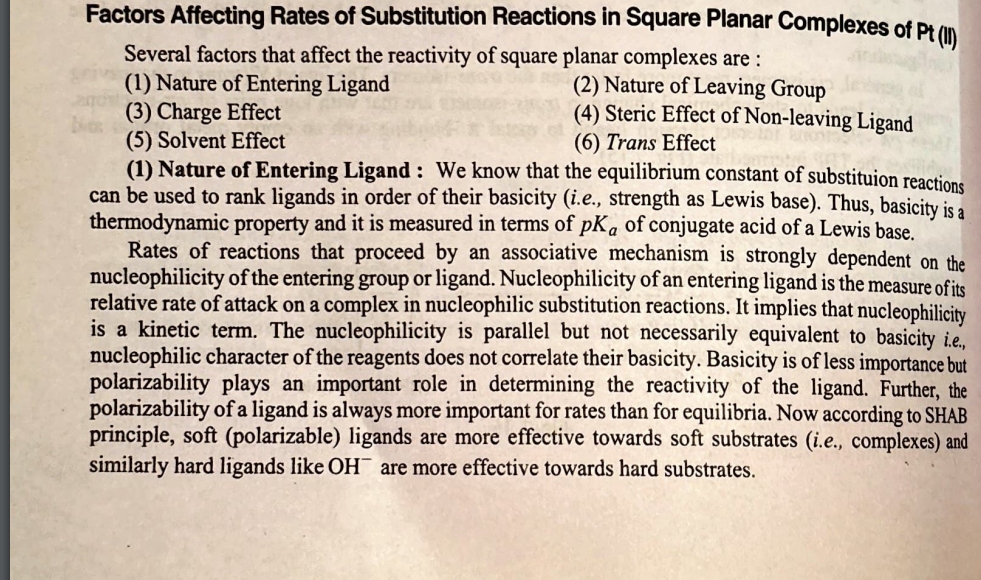What are the factors affecting rates of substitution reactions in square planar complexes of Pt(II)?

Understand the Problem
The question is discussing factors that affect the rates of substitution reactions in square planar complexes of Pt(II), highlighting the nature of the entering ligand and its relationship to nucleophilicity and basicity.
Answer
Nature of entering ligand, leaving group, charge effect, steric effect, solvent effect, trans effect.
The factors affecting substitution reactions in square planar complexes of Pt(II) include the nature of the entering ligand, nature of the leaving group, charge effect, steric effect of non-leaving ligands, solvent effect, and trans effect.
Answer for screen readers
The factors affecting substitution reactions in square planar complexes of Pt(II) include the nature of the entering ligand, nature of the leaving group, charge effect, steric effect of non-leaving ligands, solvent effect, and trans effect.
More Information
In square planar Pt(II) complexes, polarizability of ligands influences reaction rates more than basicity. Soft, polarizable ligands effectively interact with soft substrates, aligning with the HSAB principle.
Tips
A common mistake is to confuse nucleophilicity with basicity. Nucleophilicity relates to reaction kinetics while basicity is a thermodynamic property.
Sources
AI-generated content may contain errors. Please verify critical information